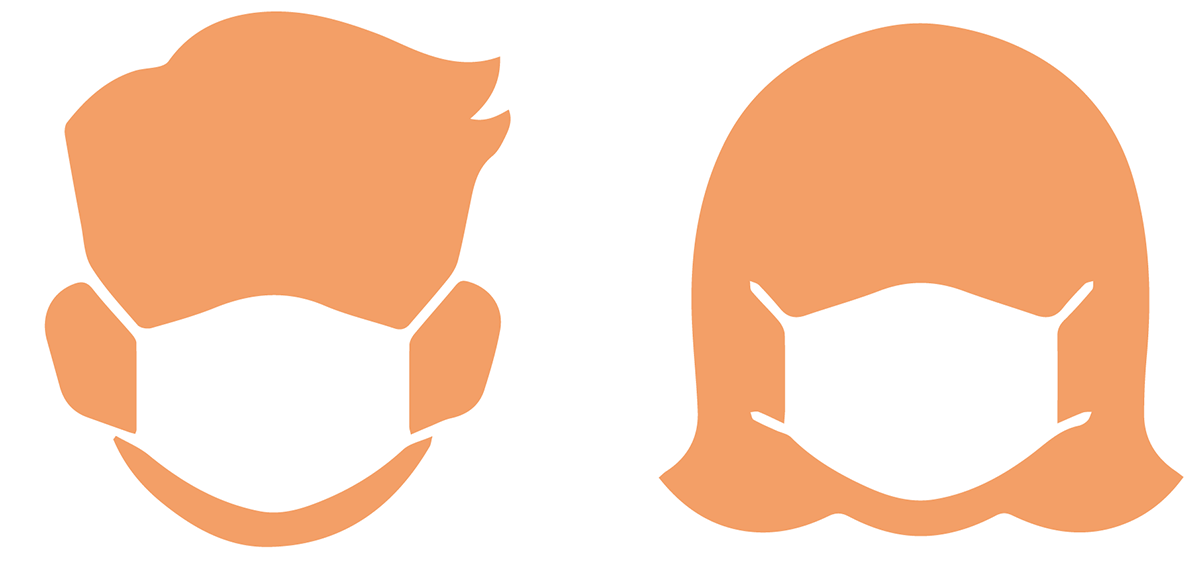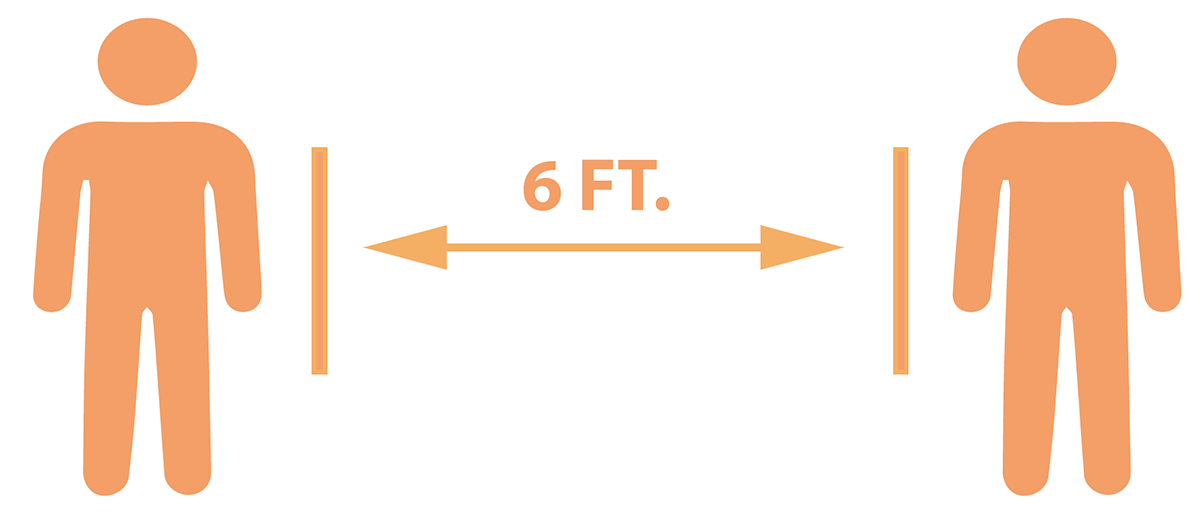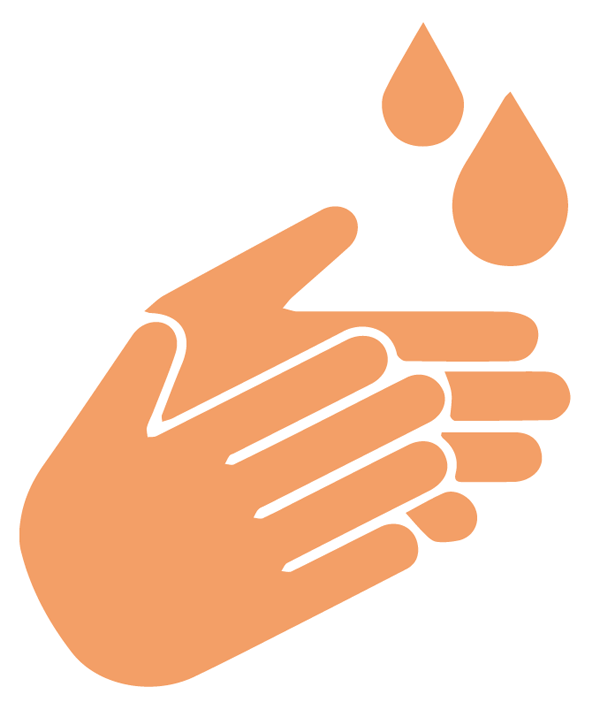Comet Commitment
As a Comet I commit to following the Campus COVID-19 plan. In the spirit of looking out for one another, I will take personal responsibility for my health and will do my part to keep our community and my fellow Comets safe.
Expectations
The responsibility falls on all of us to protect each other by helping reduce the spread of COVID-19 in the UT Dallas community and beyond. All Comets are expected to:
- Take the DAILY HEALTH CHECK. You will receive an electronic communication each morning, prompting you to complete the daily health check survey.
- FACE MASKS/FACE COVERINGS are required in all buildings at all times. This includes outdoor spaces on campus if six feet of separation cannot be maintained. An exception would include residential suites.
- Pay attention to SIGNS around campus, which may change daily. Elevators, various buildings, doors, etc. may have special rules of use.
- Fill out the COVID-19 Self-Report Form
 if you have tested positive for COVID-19, have had close contact with someone who is COVID-19 positive, or have symptoms consistent with COVID-19.
if you have tested positive for COVID-19, have had close contact with someone who is COVID-19 positive, or have symptoms consistent with COVID-19.
- Follow directions from staff or faculty regarding cleaning and disinfection of shared-space areas or classroom/lab equipment.

Consequences
What happens if I don’t comply with community expectations?
Breaking the following rules may be considered a violation of the Student Code of Conduct [UTDSP5003].
- Failing to take the DAILY HEALTH CHECK survey.
- Failing to disclose, through the COVID-19 Self-Report Form
 , if you test positive, have symptoms that are consistent with COVID-19, or have had close contact with someone who has COVID-19.
, if you test positive, have symptoms that are consistent with COVID-19, or have had close contact with someone who has COVID-19.
- Choosing to not wear a MASK/FACE COVERING. Students who choose to not wear a face covering may not attend class in person. If you attempt to attend class in person without a mask, you will be asked to put one on or leave. Instructors may end a class if a student refuses to comply and will refer the student to the Office of Community Standards and Conduct.
- Coming to campus or leaving your on-campus residence if you are expected to SELF ISOLATE/QUARANTINE because of a positive COVID-19 test or exposure. Your professors will be notified when you are cleared to return to class.
- Failing to adhere to social distancing requirements established by the University.

Symptoms
If you experience any of the following new or worsening symptoms, in a way that is not normal for you, you should immediately report them on the COVID-19 Self-Report Form  .
.
- Fever or chills
- Cough
- Shortness of breath of difficulty breathing
- Fatigue
- Muscle or body aches
- Headache
- Loss of taste or smell
- Sore throat
- Congestion or runny nose
- Nausea or vomiting
- Diarrhea
Avoiding Exposure
In order to avoid exposure to COVID-19 it is important to understand how it spreads.
- Between people in close contact with each other (less than six feet apart).
- Through respiratory droplets that are produced when an infected person coughs, sneezes or talks. These droplets can land in the mouths and/or noses of people who are nearby and possibly be inhaled into the lungs.
- Recent studies have found that it is possible for the virus to spread from individuals who are not showing symptoms.
In order to avoid exposure to COVID-19 it is important to know how to best protect yourself.
- Wash your hands often.
- Use soap and water for at least 20 seconds, especially after you have been in shared spaces.
- Wash your hands before eating or preparing food, before touching your face, after using the restroom, after leaving a public space, after blowing your nose, after coughing or sneezing, and after handling your face mask.
- Avoid close contact with others.
- Maintain a distance of six feet between you and others.
- Avoid community gatherings, or participating in group activities outside of academic settings.
- Wear a face mask.
- Wear a mask in all public settings and when around people that don’t live in your household.
- Wash your mask often and wear a clean mask each day.
- Avoid placing your mask on countertops or desks. Instead, store them in a paper bag or a bag that is only accessible to you.
- Always wear your mask correctly.
- Wearing a mask or cloth face covering does not mean it is safe to be in close contact with others – always maintain social distancing.
Acceptable Mask Use

UT Southwestern Masking Policy 
Your cloth face covering should:
- Reach above the nose, below the chin and completely cover the mouth and nostrils.
- Fit snugly against the sides of the face.
- Be made of multiple layers of fabric that you can still breathe through.
- Be able to be laundered/machine dried without damaging the material or shape.
Do not buy surgical masks to use as a face covering. Surgical masks are intended for healthcare workers and first responders. Many items you may already have in your home can be used to create face coverings. Try creating a cloth face covering using a bandana, ski mask, washable napkin or dish towel. Get more information from the CDC about correct uses of a cloth mask.
Learn the safe way to remove and replace your mask when dining on campus.
Before you eat or drink:
- Wash your hands or clean them with hand sanitizer.
- Carefully remove your mask.
- Place your mask in a paper bag or other clean bag.
- Repeat step one.
Once you have finished eating or drinking:
- Wash your hands or clean them with hand sanitizer.
- Carefully put mask back on, ensuring clean side is toward your face and you are not touching your face or eyes.
- Repeat step one.
What if I Have COVID-19?
I live on campus:
You will be required to self-isolate for at least 10 days, and until your symptoms are improving and you can go fever-free for 24 hours without medication to reduce fever.
- If it’s possible to return home, you should do so.
- If you cannot return home, we may assign you to an isolation suite until you are better and cleared to return.
- Meals will be brought to you if you are on a meal plan or have no other dining options.
- You will receive daily check-ins from University Housing or the Student Health Center to support your recovery.
- Dean of Students staff will work with your faculty to support academic progress and alert them when you have been cleared to return to class.
I live off campus:
You will be required to self-isolate for at least 10 days, and until your symptoms are improving and you can go fever-free for 24 hours without medication to reduce fever.
- You will be asked to not return to campus until you have a doctor’s release note or are cleared by a member of the Dean of Students staff.
- Student Health Center staff will check in daily if you tested on campus, Dean of Students staff will check in periodically if you tested off campus.
- Dean of Students staff will work with your faculty to support academic progress and alert them when you have been cleared to return to class.
What if I Am In Close Contact With COVID-19?
I live on campus:
You will be required to quarantine for 14 days.
- If it’s possible to return home, you should do so.
- If you cannot return home, we may assign you to an on-campus quarantine suite until you are cleared to return.
- Meals will be brought to you if you are on a meal plan or have no other dining options.
- You will receive check-ins from University Housing until you are cleared to return.
- Dean of Students staff will work with your faculty to support academic progress and alert them when you have been cleared to return to class.
- If you begin experiencing symptoms, you will be asked to report them immediately.
I live off campus:
You will be required to quarantine for 14 days.
- You will be asked to not return to campus until you have a doctor’s release note or are cleared by a member of the Dean of Student staff.
- You will receive check-ins from a member of the Dean of Students staff until you are cleared to return to campus.
- Dean of Students staff will work with your faculty to support academic progress and alert them when you have been cleared to return to class.
- If you begin experiencing symptoms, you will be asked to report them immediately.
Learn More
Latest Campus Updates
UT Dallas adheres to current CDC guidance and will update this document and the COVID-19 website as changes are implemented.
Student-Specific Information including:
- Health and Counseling Services
- Course Information
- Learning Resources
- Financial Aid
- Career Services and Student Employment
- Campus Operations
- Other Helpful Links
Find additional frequently asked questions online.
Call the Comet Family Helpline to ask questions of in-person UTD staff: 844-UTD-FMLY (844-883-3659).


.

